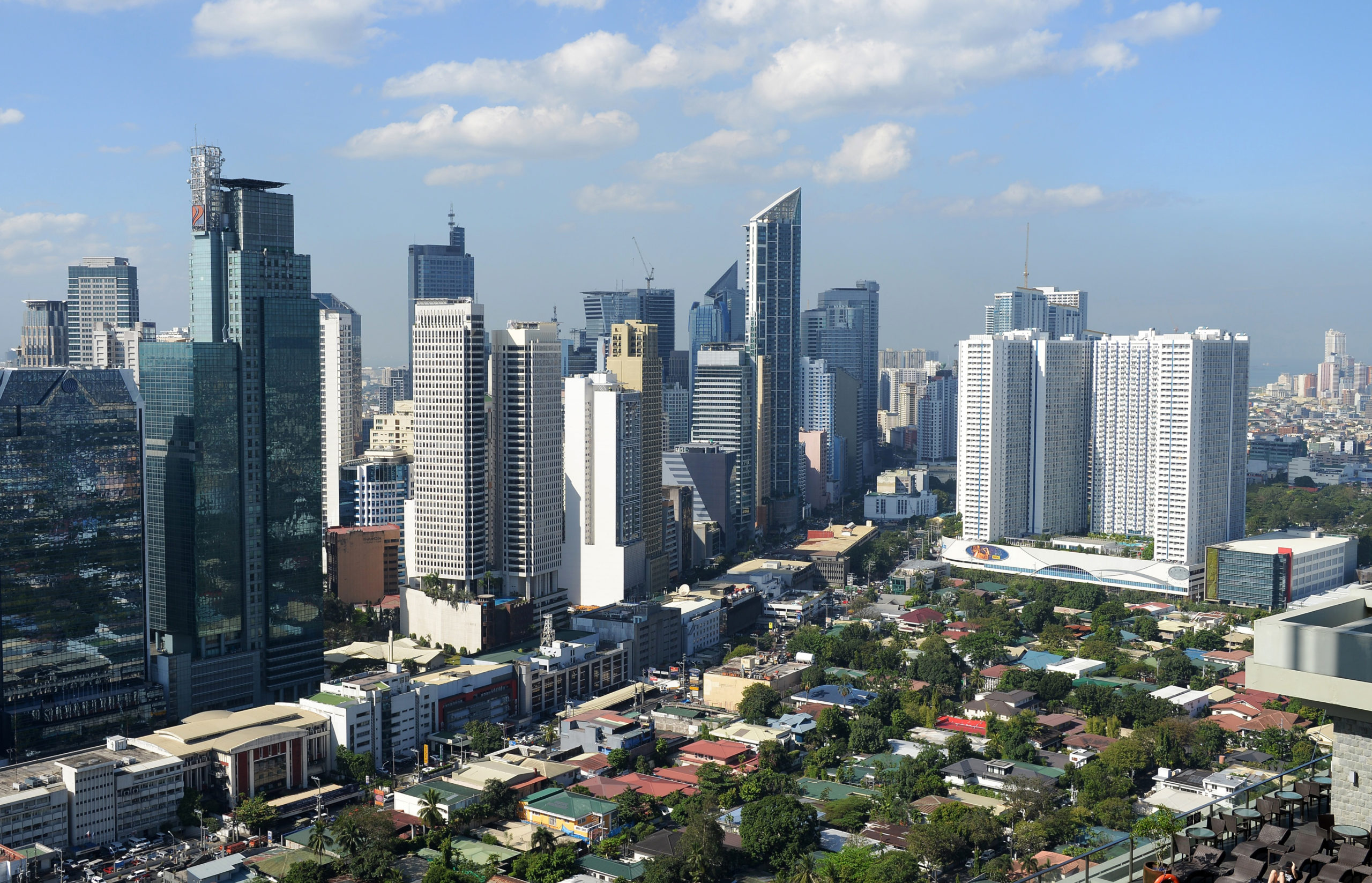

Skyline of the monetary district of Makati. Regardless of the downgrade of the US’ credit standing, Filipino traders are holding on to US belongings. (Photograph by Ted ALJIBE / AFP)
MANILA, Philippines – Main Philippine establishments are usually not shunning American asset courses simply because Moody’s determined to downgrade the US’ pristine credit standing.
Nevertheless, the worldwide debt watcher’s motion has prompted Filipino traders to evaluate their offshore funding choices and portfolios.
Yields on long-term US Treasuries briefly surpassed 5 % whereas Wall Avenue shares ended flat initially of the week, after Moody’s turned the third main world debt watcher to strip the US of its triple-A sovereign over ballooning money owed and deficits.
READ: US loses final triple-A credit standing as Moody’s cuts over authorities debt
At residence, establishments just like the Maharlika Funding Corp. (MIC)—the corporate managing the nation’s sovereign wealth fund—are intently watching how markets reply to the information. For Rafael Consing Jr., president and CEO of MIC, the fast market response to Moody’s determination was “comparatively measured.”
“We’re intently monitoring all world financial developments, together with these ranking changes, and can totally assess any potential US dollar-denominated investments primarily based on risk-adjusted returns and our nationwide growth mandate,” Consing stated.
Uncertainties
London-based Capital Economics stated in a commentary that whereas US yields had risen and the greenback fell, information of the ranking downgrade “doesn’t appear up to now to have made a lot of a market splash.” However some analysts had stated that Moody’s motion casts uncertainty over the standing of US Treasuries and the dollar as a protected haven for world capital.
Within the Philippines, establishments just like the Bangko Sentral ng Pilipinas (BSP)—whose international investments type the majority of the nation’s worldwide reserves—usually invests in A-rated belongings. However it’s unlikely that the central financial institution would make any main adjustments to its portfolio following Moody’s determination, as there’s nonetheless no market that may examine with the US Treasuries when it comes to dimension and liquidity.
Reinielle Matt Erece, an economist at Oikonomia Advisory & Analysis Inc., stated the downgrade of the US credit standing would primarily impression institutional traders like pension funds and insurance coverage corporations as they require the very best safety concerning their investments.
“They might should re-strategize their investments and search for different belongings and securities to accommodate the added danger,” Erece stated.
“Nevertheless, for fast cash and small traders, I don’t anticipate to see a damaging impression within the short-term. The credit standing even after the downgrade remains to be approach above the investment-grade degree,” he added.
For corporations like Solar Life Funding Administration and Belief Corp. (SLIMTC), the US remains to be a safe funding vacation spot. SLIMTC is anticipating its insurance-linked belongings underneath administration to achieve over P400 billion this yr.
“Despite the downgrade, the US continues to be one of many highest rated credit,” SLIMTC President Michael Enriquez stated. “Given, we could anticipate changes in yields, however we’re nonetheless comfy with the credit score.”
Allianz PNB Life, one other main participant within the native insurance coverage trade, can be monitoring market developments.
“The factors raised by Moody’s are legitimate and value contemplating,” Henry Yang, head of investments at Allianz PNB Life, stated.
“Our fund managers steadiness this together with different elements (e.g. US exceptionalism) when forming and executing funding choices,” he added.


